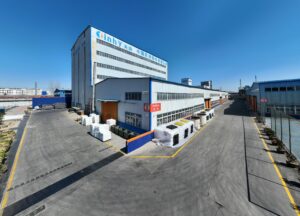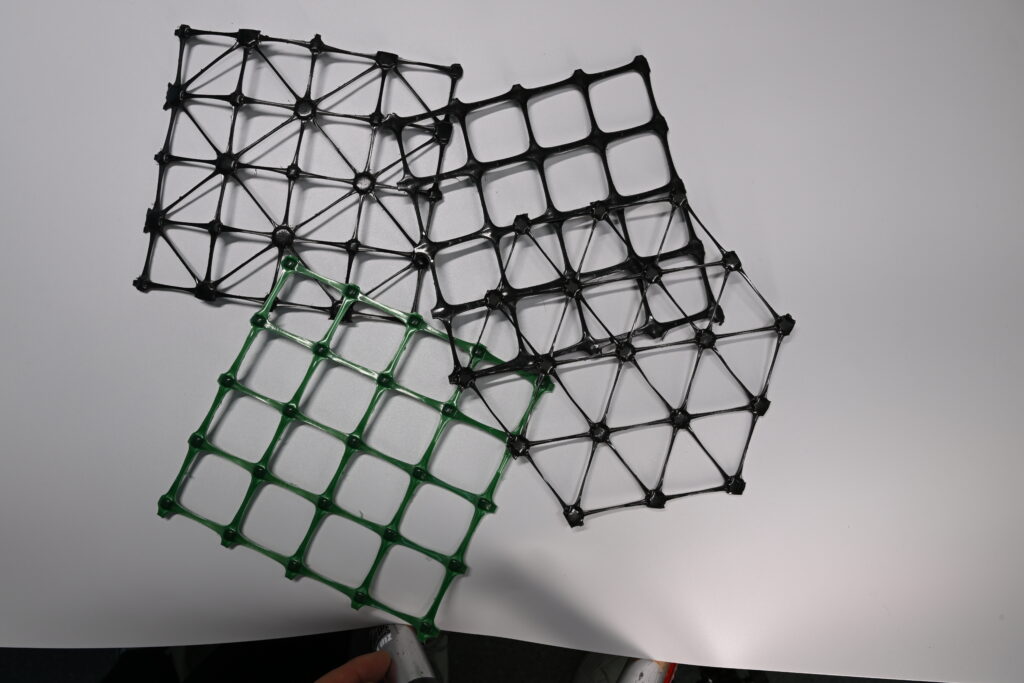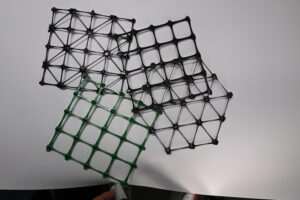Geogrid is a type of geotechnical material used for soil reinforcement and protection. Common types of geogrid materials include the following:
High density polyethylene (HDPE): HDPE is a commonly used geogrid material. It has high tensile strength and chemical corrosion resistance, suitable for various soil conditions.
Polypropylene (PP): Polypropylene is also a commonly used geogrid material. It has high tensile strength and durability, and has good resistance to ultraviolet radiation.
Polyester (PET): Polyester geogrids have high tensile strength and stiffness, and can withstand large loads. It also has good chemical resistance.
Glass fiber: Glass fiber geogrids are usually woven from glass fiber yarn. It has high strength and stiffness, and is suitable for engineering projects that require high load capacity and durability.
Steel wire: The steel wire geogrid is woven or welded with metal steel wire. It has extremely high strength and rigidity, suitable for engineering projects that require super strong load capacity.
5 advantages of geogrids
Strengthening soil stability: Geogrids can effectively increase the tensile strength and shear resistance of the soil, improving its stability. It can withstand large loads and disperse them to a wider area, reducing soil settlement and deformation.
Provide soil filtration and drainage functions: the geogrid has certain water permeability, which can filter the particles in the soil, and remove excess water to prevent ponding and Soil liquefaction. This helps to maintain good drainage performance of the soil and prevent soil erosion and landslides.
Preventing soil erosion: Geogrids can be used to prevent soil erosion on slopes, river banks, lake embankments, and other areas. It can effectively resist the impact of water currents and waves, slow down the erosion rate of rivers and oceans, and protect the integrity of soil.
Improving engineering construction efficiency: The use of geogrids can simplify the construction process, reduce the amount of earthwork excavation and filling, and save labor and time costs. It can also be constructed under complex terrain conditions, improving the efficiency of engineering construction.
Durability and sustainability: Geogrids typically have a long service life and can withstand long-term natural and environmental erosion. It has properties of UV resistance and chemical corrosion resistance, and can maintain stability under different climate and soil conditions.

Geogrids, a kind of geosynthetic product that can be applied in the reinforcement of soft soil, are usually made of high-molecular materials. Thanks to the strong tensive power as well as heavy loading ability, Tinhy’s Geogrids are widely used in many construction projects, including soil reinforcement, retaining walls construction, and pavement designing, etc. Our Geogirds with the features of strong tensive capacity, great loading ability, simple application, erosion control for soil, reasonable maintenance cost, are mainly divided into Warp Knitting Polyester Geogrids, Fiberglass Geogrids, Steel Plastic Geogrids, and Plastic Geogrids.
Tinhy Geosynthetic Co.,ltd conforms to the latest trend in the Geogrids industry and has been applying advanced technology in the production of our geogrid products. Knitting skills are used during the manufacturing process and combined with a complicated, franchised way of PVC impregnation that penetrates into the high tenacity polyester yarns. Tinhy provides super resistance to creep under constant pressure, abrasion resistance, great temperature stability, and marvelous chemical stability.



